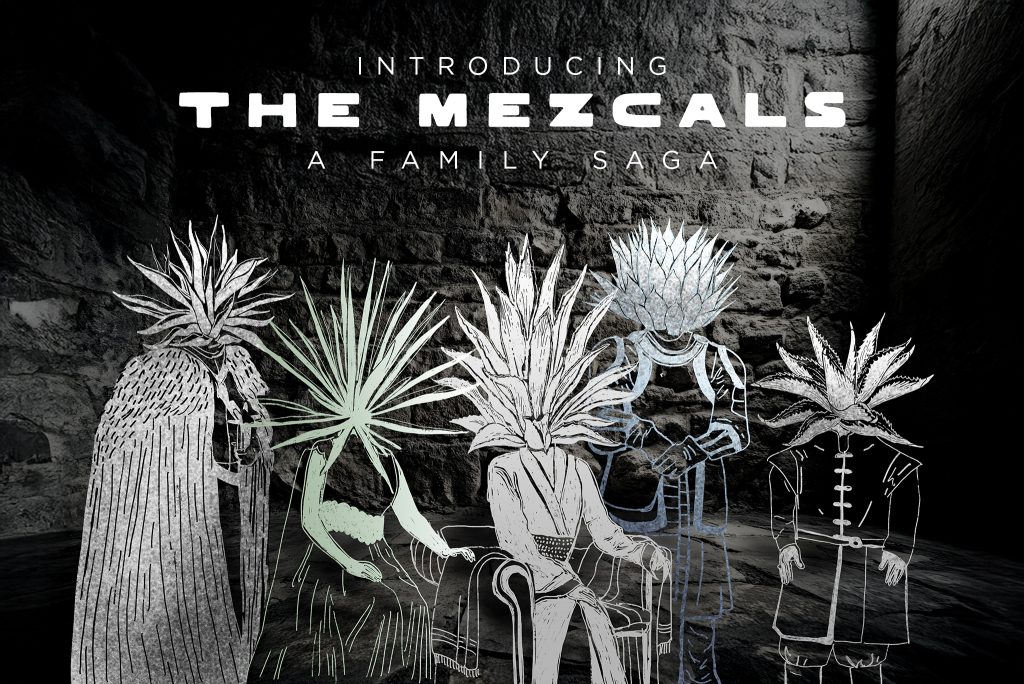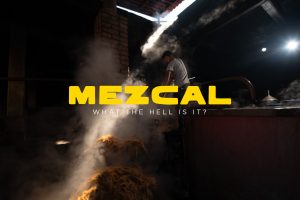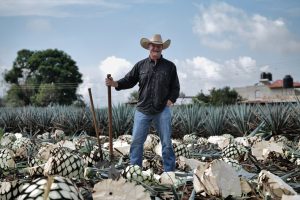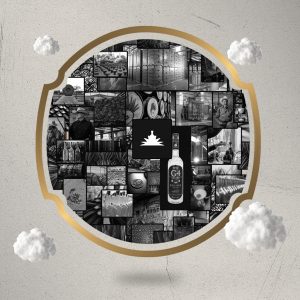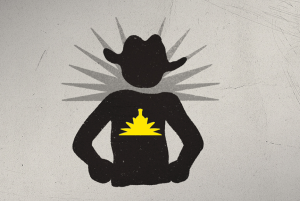Chapter I: The Children of Pulque
(The Brothers Who Split the House of Mezcal — Azul and Verde)
In the beginning, there was Pulque.
Old Pulque — ancestor, prophet, drunkard saint — was never meant to be a father. He was a creature of fermentation, not fire. He lived in temples and campesino hearts, white and thick and alive with gods. The people drank him to speak to the divine, and sometimes, to forget they were mortal. His blood was sacred, until it wasn’t.
When the fire came — Spanish fire, copper fire, distilled and foreign — Pulque watched the world change. His children were taken from him, boiled and transformed, turned into spirits no longer just holy, but marketable. That was how Mezcal was born: not from love, but from survival. A child of conquest, of smoke and fusion. The first of a new lineage.
La Casa Mezcal grew from that union like a wild orchard, tangled and fierce. They spread across the land, carrying in their veins both memory and mutation. Tobalá, the small and intense. Maximiliana, elusive and noble. Lamparillo, thick skined and secretive. All cousins, scattered by geography and stubbornness, yet tied together by the whisper of smoke. Theirs was not a peaceful house. Each claimed the true legacy, each distilled their truth differently. But all bowed — reluctantly — to the myth of their beginning.
Among them, in the southern valleys scorched by sun and silence, lived the family Angustifolia. It was not the oldest branch, nor the proudest. But it was the most fruitful. And among its offspring were two who shone brighter than the rest.
They were not twins, not quite. But Azul and Verde were born close enough to share a root. They grew side by side, under the same sun, nurtured by the same rains. Verde was wild, strong, and generous — the kind who laughed easily, and held his ground without fanfare. Azul was quieter, watchful, elegant in a way no one could name yet. He listened more than he spoke, and when he bloomed, it was in silence.
The old agaveros used to say they were destined for greatness. Together, they would carry the name of Mezcal to places even the wind hadn’t touched. Sweet, noble-hearted, tough as stone. Their bond was deep, unspoken — the kind that didn’t need words to be felt.
But then, like a shadow cast before the storm, a man arrived.
The elders said they had dreamt of him — boots too clean, eyes too sharp, speaking in foreign tongues. He came not with violence, but with something colder: classification. And though no blood was spilled, something sacred would soon be taken.
He came from France, or so they said. A botanist. A gentleman. His name was Frederic Albert Constantin Weber, though few could say it without stumbling. He wore boots that had never touched soil and spoke with the assurance of someone who’d never been ignored. He didn’t ask permission to study them. He simply observed, took notes, made claims.
And then, he found Azul.
He circled him like a priest before a sacrament. Measured his arms. Examined his heart. Whispered in a language no one understood. And finally, he did something no one expected: he named him.
Weber.
And just like that, Azul was no longer just family. He was property. He belonged to someone else — catalogued, baptized, adopted. Weber took him north, to the highlands of Jalisco, promising education, purpose, destiny. The Angustifolia family said yes, with tears in their throats. They believed, perhaps, that it was a kind of honor.
But Verde never spoke again of that day.
And the wound that Weber left behind, with nothing more than a foreign man’s name and the flash of a pen, still throbs when the wind blows from the north.
In Jalisco, Azul was rechristened once more. His official name was now Tequilana — last name Weber — a title forged from the name of the land that had promised him glory. It was a name that spoke of destiny, of engineered futures and foreign pride. But to Azul, it echoed with both promise and loss — a reminder that the soil he once called home now spoke of him only in silence. It sounded noble, even royal, yet foreign to his ears. The family of Mezcal no longer recognized him as one of their own. He no longer made mezcal — he made something else now. Something newer. Something meant for greatness. The people in Jalisco saw the shine, the story, the sweetness — and called his produce: Tequila.
Young Azul carried a storm in his chest. He had been told he would carry the family’s legacy forward — that he would return home one day, stronger, brighter, crowned by knowledge and purpose. And a part of him believed it. A part of him was proud.
But pride sat beside sorrow. He had not just left his land — he had left his brother, his roots, his name. Each step north felt heavier, as if Oaxaca pulled at his ankles. He looked the same, smelled the same — sweet and strong — but everything around him whispered a new truth: you are no longer what you were.
He was Tequilana now. Last name Weber. And while the name felt like a costume stitched by someone else, it came with admiration. The people of Jalisco welcomed him. They toasted to his strength. They offered him gifts — attention, praise, a future carved in glass and travels. For being what he was, he was celebrated.
And yet, inside, Azul felt the tremor of contradiction. He told himself it was still him — that the roots ran just as deep, that he carried his brother’s laughter somewhere in his fibers. But it was getting harder to believe. Pride and sadness danced inside him like two fires burning in opposite corners of the same heart. Purpose hummed in his new name. But so did betrayal.
Far away, Verde stayed behind. Rooted in Oaxaca. His sweetness remained, but it turned more guarded — less open-hearted, more deliberate. The family was quiet after Azul left, grieving a future that no longer included both brothers. Yet it was Verde who stepped forward.
He worked harder. Listened more. Became the one others leaned on. Not because he wanted to lead, but because someone had to protect what was left. Over time, his presence steadied the family, and his humility became legend.
The people began to call him Espadín, for the shape of his leaves and the way he carried himself — like a sword half-buried in earth, patient, waiting. He never declared himself head of the family. He didn’t need to. The house of Mezcal simply began to revolve around him.
He was no longer just Verde. He was the keeper of fire, of memory — the chosen one, not by ambition, but by staying.
The brothers never wrote. But they remembered.
You could still taste the same sweetness in both — but one had learned to hide it under glass and polish, while the other wore it on his skin, like dust after the fire.
This article was structured with the assistance of artificial intelligence (ChatGPT). All content is based on human input and editorial oversight. For more details on how PKGD integrates AI responsibly, please refer to our AI Policy.

